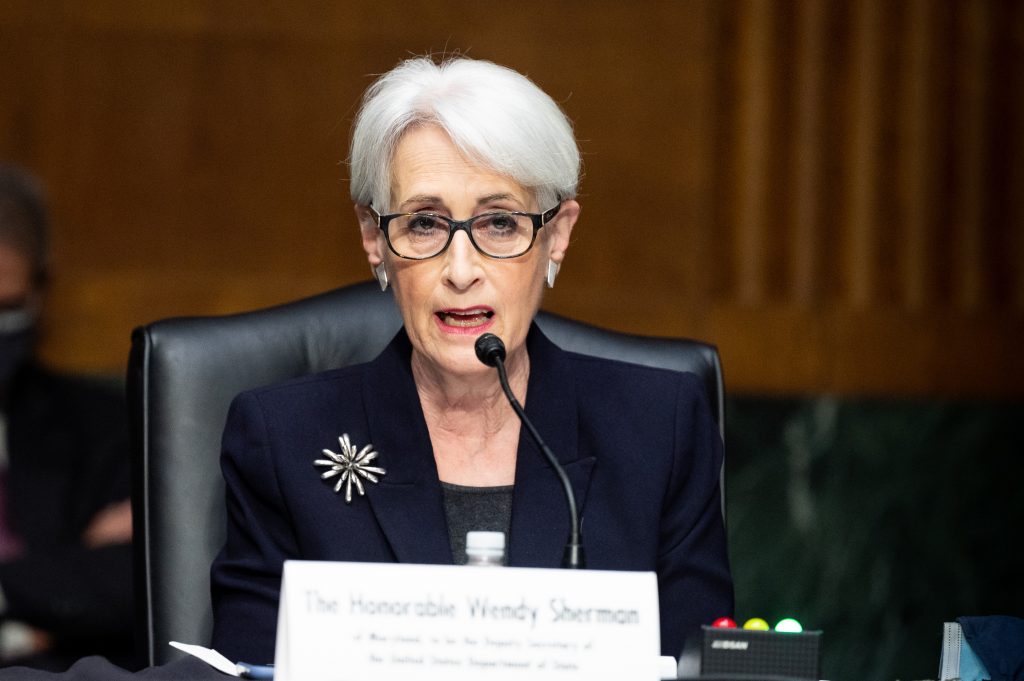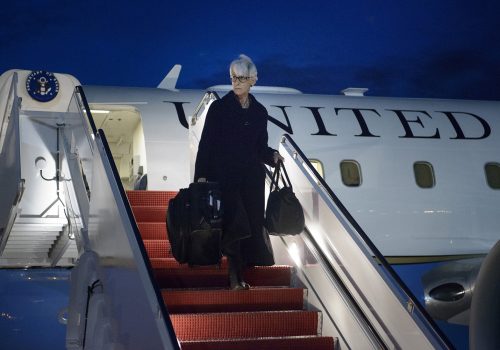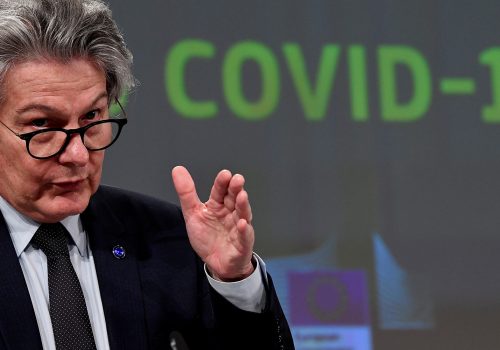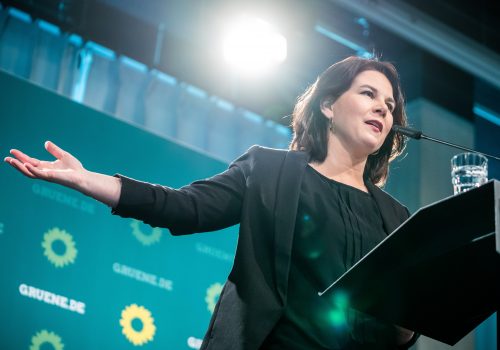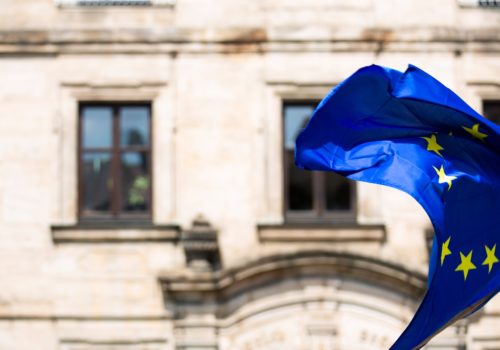It’s the world’s toughest tightrope: How can the United States and its European allies cooperate with China and Russia on issues like climate change while also countering their disruptions to the global order?
US Deputy Secretary of State Wendy Sherman has an answer. The common framing of the United States trying to “contain” its rivals is wrong, she contends.
“I want to say clearly: Our effort is not to either contain Russia or to contain China,” Sherman said Friday at the EU-US Future Forum. “They are sovereign nations who want to have a place in the world. We just want to make sure that that place is not one of aggression—[that] it is not a place where human rights are abused.”
Sherman’s conversation with Benjamin Hadddad, the director of the Atlantic Council’s Europe Center, came back repeatedly to the urgency of transatlantic cooperation in confronting Russia, China, and other challenges. Sherman, a former Atlantic Council board member, also dove into vaccine diplomacy, NATO burden-sharing, and the future of the Iran nuclear deal.
Here are some of the highlights of the conversation.
Getting vaccines to the world
- The Biden administration caused a global stir this week by backing a proposal to waive patent protections for COVID-19 vaccines, putting the United States at odds with Germany, France, and other European allies. Sherman downplayed any expectations that this move would have a swift impact. “The president made this decision to ask our USTR, our trade representative, to go to the [World Trade Organization] to see if, in fact, a temporary lift of patents might help production increase,” she said. “As you know, this decision will take some time at the WTO and then ramping up will take some time.”
- She pointed out that the United States has agreed to distribute some sixty million doses of the AstraZeneca vaccine abroad, once it clears a quality review by the US Food and Drug Administration, and added that there is strong agreement with Europe on the need to boost vaccine production. “We all need to encourage all of the pharmaceutical manufacturers to increase their production as much as possible, to provide vaccines at cost, if not through nonprofits, particularly in the developing world,” Sherman said.
- Sherman noted that the State Department has lost local staff members at the US diplomatic mission in India to COVID-19 amid an escalating crisis in the country. And she said the ongoing struggles of the developing world with the virus underscore the need for rich nations to “lead in getting vaccines to the world or it’ll come right back to those of us who have had the privilege and the possibility of vaccinating our citizens in the first instance.”
Watch the event
Long road ahead for the Iran deal
- Sherman led negotiations for the 2015 Iran nuclear deal under the Obama administration. And she acknowledged the hurdles ahead for reviving the agreement, as indirect talks to do so continue in Vienna. “There’s been some progress made, but there’s still a long way to go on this,” she said. “I am hopeful that we can reach an understanding so that the [International Atomic Energy Administration] technical agreement that expires with Iran at the end of May can be extended. I’m hopeful that we make enough progress that it can stand as the Iranian election gets underway in June. I don’t know if we can get to compliance-for-compliance agreement and an agreement to continue discussions past that by the deadline of their election.”
- One sticking point, Sherman added, is the fate of US and British citizens “unjustly detained” in Iran. She specifically noted a need “to gain more information about what has happened to Robert Levinson,” a former FBI agent who was detained in Iran while on an unauthorized mission for the CIA in 2007. He is presumed dead.
‘Bolster[ing] civil society in Turkey’
- Asked about the US relationship with Turkey, Sherman said Ankara is “a valued and important partner in NATO” but that the relationship is “complex.”
- She added, “We need to call out the undemocratic space and try to dialogue with Turkey to help make a difference, and to bolster civil society in Turkey so that, in fact, there is a voice within Turkey itself about its own future.”
The need for 2 percent
- After former US President Donald Trump pressed NATO allies to fulfill their pledges to spend at least 2 percent of gross domestic product on their militaries, even threatening to withdraw from the Alliance if they fell short of that goal, the Biden administration has taken a less confrontational approach. But Sherman made clear that she wants European nations to hit the target they agreed to at a 2014 conference in Wales. “We want to share the burden,” Sherman said. “We can’t do it alone. We appreciate that we can’t do it alone. Where NATO is concerned, we want Europe to meet its Wales pledges country by country.”
- At the same time, Sherman emphasized that burden-sharing is about more than numbers: It’s “also about working together to build the capabilities of NATO, to build the future deterrence and defensive capabilities of NATO, to look to the emerging technologies and think about what we need for NATO, and to do it together.”
Read the transcript
Daniel Malloy is the deputy managing editor at the Atlantic Council.
Further reading
Image: Wendy Sherman speaks to a hearing of the US Senate Foreign Relations Committee after she was nominated to be deputy secretary of the Department of State. Photo by Michael Brochstein/Sipa USA via Reuters.
